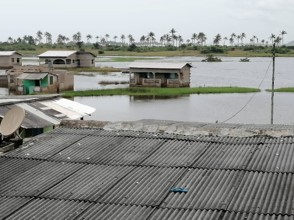Building Human Capital in Coastal Adaptation to Climate Change
Nature Today has established a short-course to build the capacity of resource managers in terms of climate change to cope with its impact and existing strategies.


Overview of the project
Ghana is endowed with marine and coastal resources which support fishery, industry and mining. These resources are threatened due to natural and human factors. There is also growing pressure from increasing diverse human activities within Ghana’s coastal environment coupled with climate change impacts. The situation is exacerbated by the lack of scientific knowledge and information that covers the coastal area, and a up-to-date management plan to effectively deal with the dynamic challenges facing the coastal ecosystems. This underscores the urgent need to design and implement new approaches for managing coastal resources in sensitive tropical environments effectively. Although inadequate and in some cases lack of logistics and resources have been named as the core challenges to address coastal zone issues, the limited capacity for coastal zone managers has also been found to play a major role in the poor management of our coastal areas.
The objective of the climate change short-course is to build the capacity of resource managers in the areas of climate change, its impact and existing strategies to assess and address climate change issues. The 5-day training builds the intellectual capacity of participants to make systematic analysis climate change impacts and design practical solutions to tackle them. The training also provided participants with fundamental knowledge and skills in developing teamwork, leadership and communication for combating climate change. The training uses a variety of teaching methods to present course content and enhance teaching and learning, including presentations, discussions, case studies, simulations and group assignments. The training is divided into six (6) modules: Introduction to coastal ecosystems in Ghana; Introduction to the science of climate change; Communication of climate change issues; climate change impacts, adaptation and mitigation; Climate change impact and vulnerability assessment; and Developing effective partnership against climate change.
The objective of the climate change short-course is to build the capacity of resource managers in the areas of climate change, its impact and existing strategies to assess and address climate change issues.
Ongoing research
10/23/2018 - 5/31/2019
Number of people and organisations trained
Improved knowledge and Capacity in Climate Change
Funding from University of Cape Coast under the USAID supported Fisheries and Coastal Management Capacity Building Support Project
organisation
Building Human Capital for Coastal Adaptation to Climate Change in Ghana
in collaboration




